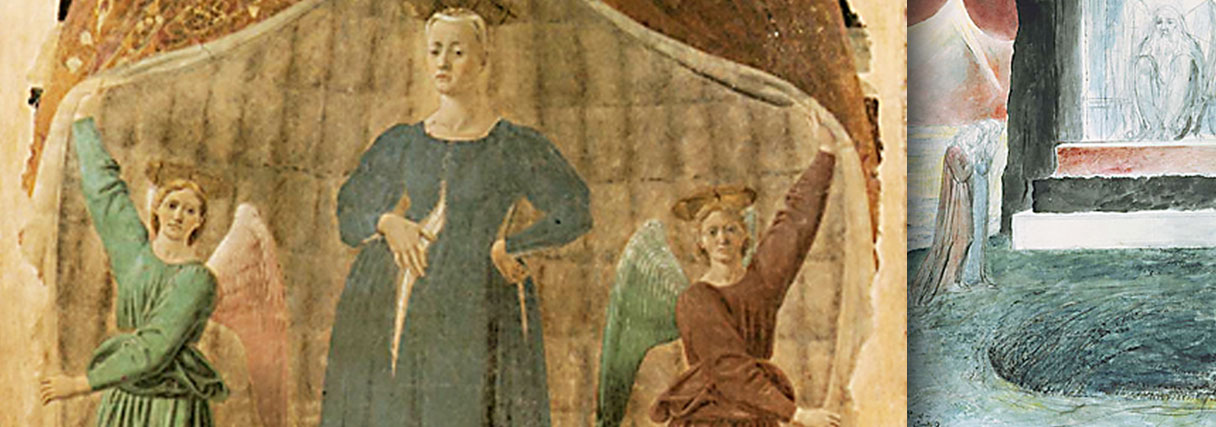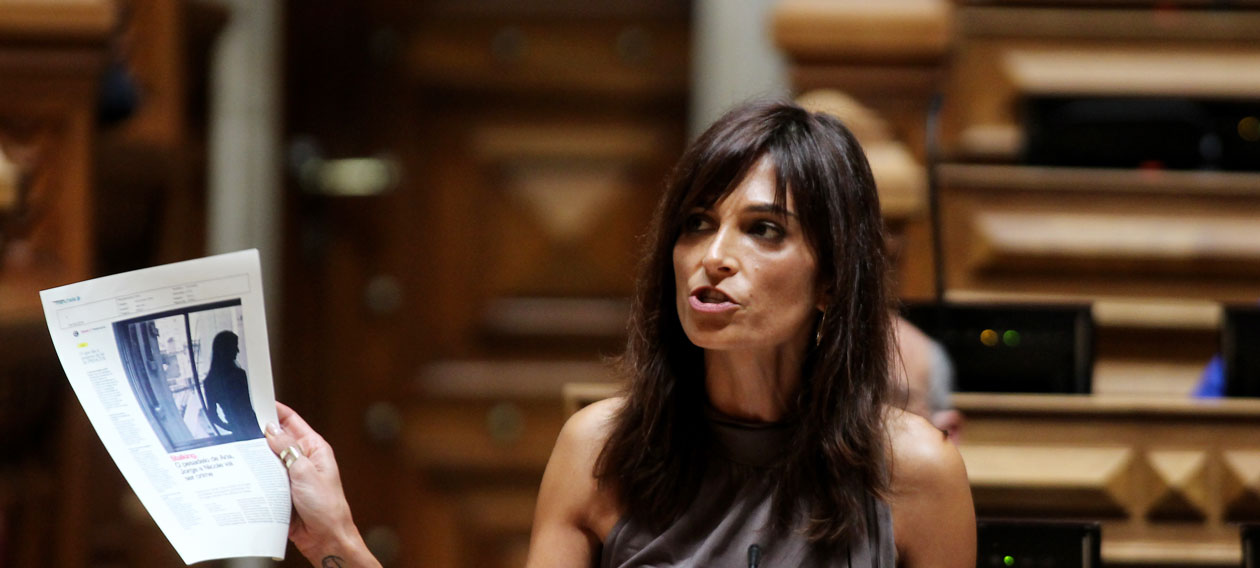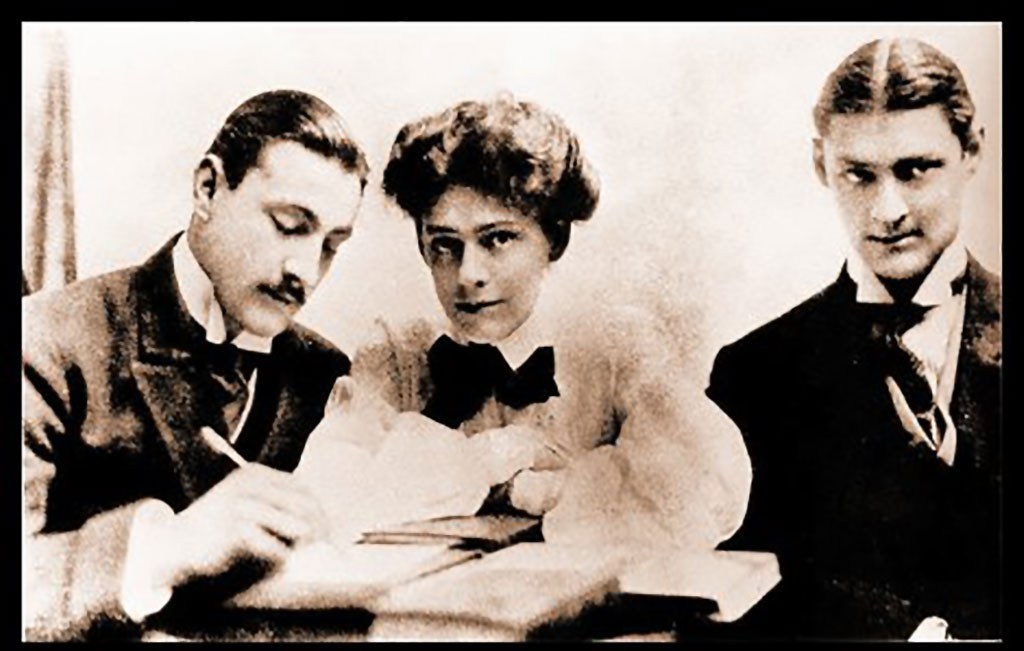
Angelic Visions
November 30, 2014
Isabel Moreira, Can Constitutions Survive As We Know Them?
December 5, 2014What has been the role of women in society and within personal relationships?
Elisa Nocca unearths a fascinating snapshot of turn-of-the-century thinking on the matter and assesses the real progress we have made, or not.
by Elisa Nocca
Sorting through some items and mementos belonging to a great aunt of mine, I came across an essay dated 1903, entitled “Women in Civilisation and History”. It was a small bound pamphlet, its pages already yellowed with age and which the author, a certain Maria Compostella, had signed for my great aunt on the occasion of the lecture she had given at the Treviso Circolo Sociale. My curiosity aroused, I set about reading it.
“Women are the great modifiers of the social psyche” – that was her opening statement and what immediately fascinated me was her style with its old-fashioned turn of phrase.
“In early societies, women appeared colourless and their status was that of an unequal minority; they were more objects rather than human beings, liberty and morality were non-existent attributes”
Maria Compostella goes on to trace the chronology of women and to point out that marriage provided the first fundamental impetus for change. “For the Greeks and Romans, it moved from being a chance union of natural instincts to being an association and bond that contemplated the idea of human rights”.
The next factor in preparing women for their “civil virtue” was Roman religion. The temples of Venus conferred on them the role of keeper of the family, thereby earning respect in both private and public life. The law allowing a husband to sell or even murder his wife (as she was his chattel) fell into disuse from this point onwards. Nevertheless, women in antiquity did not yet possess any concrete freedoms of expression and it was to be Christianity, according to Compostella, that provided the impetus towards a primitive form of “relationship”. Indeed a Christian upbringing allowed women to experience both joy and sorrow, although always within the bounds of modesty. In subsequent centuries they were increasingly elevated to the status of “heavenly being” for their love and beauty, culminating in Dante’s love poetry for his Beatrice. However, the imaginary world of the poet aside, the reality was that women still suffered tortured lives, which our author describes with telling bluntness – “and what greatness were they capable of? One only need think of the hard challenge faced by so many sacrificing themselves to matrimony and motherhood, entombed in obscurity and solitude”. Consequently day to day life was not easy, Compostella tells us “These three transitions, namely marriage, Roman religion and Christian upbringing had the effect of fashioning strong and gentle women, decisive, strong of mind and heart, from who the whole of Europe benefited when the age of warring nations arrived”
To get to know more about the author, I have a look on the internet; the essay refers to “Professor Maria Nob. Compostella”. Nothing much comes up. It seems she was a history professor at Ca Foscari University in Venice at the end of the 19th century but the source isn’t verifiable. So a lady born, it would seem, during the period of the battle for Italian independence and unification. Of course we have proof she was an academic and boasted an illustrious career. But no picture, no other historical reference.
Reading further, Maria Compostella line by line reveals a subtle distinctive feature emerging in women’s behaviour. “The influence women may exert on the mind, on upbringing and the fate of mankind is considerable and powerful [….].possessing a strength impossible to measure, to foresee, let alone understand. She will always be able to inspire humanity [….]. Quietly happy, sincere and secretly indulgent, she can become, when the occasion demands it, man’s humble servant, not out of any unconscious passivity but merely in order to indulge man his whimsy for being in command”
Finally Maria Compostella, career woman, viewed woman’s emancipation with great suspicion. “We are enjoying the benefits of our age; we have gained access to traditional studies, in industry and the professions [….] Great care needs to be taken when overturning the natural idea of things. Strength and logic are man’s forte; in a woman’s nature, sentiment and imagination predominate over reason so, consequently, to contemplate disrupting this balance would spoil everything. Just as a horse’s attribute is its agility, and that of a man his daring, so a woman’s is her affection and tenderness. If we take this away from her, we will not only see all her attractive features disappear but the harmony of opposites will be disrupted because it is as a result of the harmony between opposites that we attain order in the world – let that never be forgotten!”
For Compostella this definitely did not mean women should deny their true nature; indeed, she later declares that women must realise themselves “in the purpose for which they were created. They must fight for their ideals and be contemptuous of the unjustified and popular idea that when a woman is abused she must keep quiet and forgive her abuser”. It should be remembered, of course, that the arguments she uses date from more than a century ago. One could say, throughout all her thinking, the balance a woman’s identity gives to a relationship is guaranteed by its different essential qualities being clearly distinct, namely, man is strength and woman sentiment.
What could we tell her about us women nowadays? I would like to put her mind at rest, but, with no sense of irony, it is not easy to describe our contemporary ‘selva oscura’ – Dante’s ‘dark forest’. In this day and age distinctions have been lost – both these qualities of strength and sentiment belong equally to men and women alike. And so the opposing developments she so mistrusted are more about how these two natures can be said to be in harmony, rather than which is to be regarded as whose specific prerogative, whether in practise or by rights and it is this which represents our major advance in relationships between the sexes.
After having struggled for centuries in silence, women have played a part in and been devastated by two world wars following so close on from each other, joined street marches, gained consensus, freedom of expression, in word and protest movements, and acquired political and managerial power. There have been many gains from behaviour models that rely much more on the interaction between men and women. At times, it has to be said, the merging of these different models appears to create confusion, sometimes resulting in women affecting some adopted maleness and in men limiting themselves to merely describing the feeling of their masculinity.
Unfortunately there still does not exist real equality in terms of civil rights. In the world more than 70,000 women every year are killed as a result of fatal physical abuse, not to mention how many thousands more sublimate deep within themselves their dignity and dreams as they suffer innumerable acts of violence. The reverse abuse, woman on man, does not occur with anything like the same frequency.
Our identity as women has changed because the rules of the game between the various parties have changed. And from the yellowing pages of a long-forgotten lecture given to the members of the Treviso Circolo Sociale in 1903 Maria Compostella has left us with a clear rallying call – to remain, resolutely and squarely, women; to keep, therefore, fearlessly weaving the warp and woof of our social fabric using ways and means that are distinctively feminine.
We may suffer setbacks in the future but the important thing is to pick ourselves up again, stay the course and keep moving onwards and upwards.
Tr. Philip Rham




